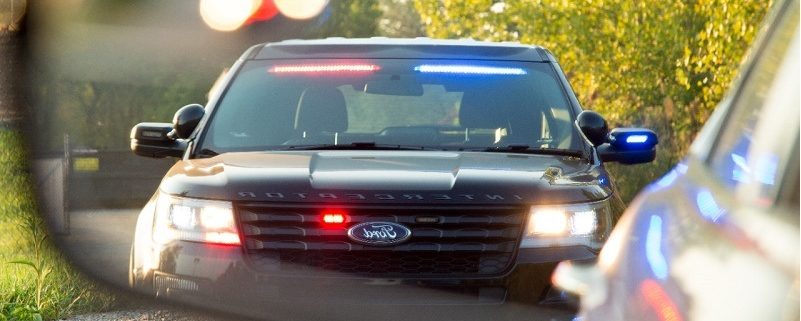Why You Should Not Submit to a Breath Test During a DUI Investigation
If you get stopped in Auburn or a nearby Alabama community for suspicion of DUI, you may wonder what your legal rights are with regards to taking a preliminary breath test (PBT) and field sobriety test (FST). You will probably be asked to take both of these tests during the stop, and the officer will strongly imply that you are required to take them or at the very least, it is in your best interests to do so. The truth is that you should not submit to any of the tests that are given during a DUI stop and investigation, because they can only help law enforcement build a case against you.
What is a Preliminary Breath Test?
Also sometimes known as a preliminary alcohol screening (PAS), a preliminary breath test (PBT) is test given by the officer during a DUI investigation, and it is used along with the results of the field sobriety tests (FSTs) to help determine if they have probable cause for an arrest. The test is given using a portable handheld device that the officer asks you to blow into.
The breath test given at the scene of the DUI stop is not the same as the formal chemical test given at the police station or hospital after a DUI arrest (more on that later). The PBT is voluntary, and you should always politely refuse to take it. There are a couple good reasons for this:
There is Very Little to Gain by Taking the PBT
As we touched on earlier, the purpose of the breath test is to help give the officer probable cause to arrest you for DUI. Without the results of this test, the case might not meet the threshold for having probable cause; and if there is no probable cause for an arrest, then any evidence collected after the arrest (such as the results of the chemical test at the police station) could be considered inadmissible at trial. Unless you have had nothing to drink and you are absolutely confident that you will pass the PBT, there is generally no good reason to take it.
Portable Breath Machines are Notoriously Unreliable
Even if you have had nothing or very little to drink, you might still want to refuse the initial breath test (during the DUI stop) simply because these machines have been known to be unreliable. The main reason that the results may be skewed is that portable breath machines measure the amount of alcohol in someone’s breath, rather than their actual blood alcohol concentration (BAC). This can cause all kinds of false readings due to medical conditions (such as acid reflux or diabetes), heavy exposure to certain types of chemicals (such as cleaning fluids), and even the use of mouthwash that contains a percentage of alcohol.
Other potential problems with portable breath machines may include:
- Improperly calibrated machines
- Machine defects
- Tests that are improperly administrated by officers
As an aside, you should always refuse field sobriety tests (e.g., horizontal gaze, walk and turn, one leg stand, etc.) for many of the same reasons. FSTs are inherently flawed because test subjects vary by age, weight, and coordination skills, and there is no reasonable expectation that an officer who already suspects that you are intoxicated will administer the test fairly.
Should I Refuse the Chemical Test if I am Arrested for DUI?
Many people confuse the preliminary breath test with the breathalyzer test that they are given usually at the police station after a DUI arrest. These are two completely different tests, and the laws are different for each. If you have already been arrested by the Auburn police for DUI, then you are required to take the chemical (breath, blood, or urine) test at the station under Alabama’s implied consent laws.
The accuracy and reliability of breathalyzer tests at police departments are greater. Roadside breathalyzer tests can be refused under the right circumstances without any penalties or consequences. Furthermore, you cannot refuse a breathalyzer test once you are arrested. You will face license suspension if you refuse this test after being arrested.
Implied consent means that anyone who operates a vehicle in the state is deemed to have consented to a chemical test if they are lawfully arrested for DUI. If you have refused the PBT and FST’s prior to your arrest, then it will be highly debatable whether or not you were arrested lawfully in the first place. But regardless, there are still consequences for refusing the chemical test, and it is usually not a good idea to do so unless you are advised otherwise by an attorney.
A first refusal (of the chemical BAC test) will result in an automatic 90-day administrative suspension of your driver’s license, and a second or subsequent refusal (within five years) will result in a one-year administrative suspension. This suspension is done separately from any criminal proceedings and penalties that result from your DUI charge.
Speak with an Experienced Auburn, AL DUI Defense Lawyer
Getting stopped for DUI in Auburn can be a scary experience, but if you refuse the preliminary tests that you are asked to submit to, the case against you will most likely be significantly weaker, and you will have a better chance of getting the charges dropped or at the very least reduced.
Whatever the circumstances of your DUI arrest, the Alsobrook Law Group is here to help. We have in-depth experience defending clients who have been charged for DUI, and we can put together the most effective defense strategy to mitigate the circumstances as much as possible.
Call our office today at (334) 737-3718 for a private and discreet consultation with one of our attorneys. We look forward to serving you!








